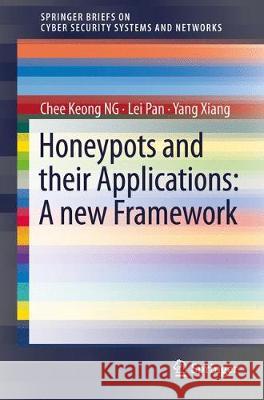Honeypot Frameworks and Their Applications: A New Framework » książka
topmenu
Honeypot Frameworks and Their Applications: A New Framework
ISBN-13: 9789811077388 / Angielski / Miękka / 2018 / 81 str.
Kategorie:
Kategorie BISAC:
Wydawca:
Springer
Seria wydawnicza:
Język:
Angielski
ISBN-13:
9789811077388
Rok wydania:
2018
Wydanie:
2018
Numer serii:
000826847
Ilość stron:
81
Waga:
0.22 kg
Wymiary:
23.5 x 15.5
Oprawa:
Miękka
Wolumenów:
01











